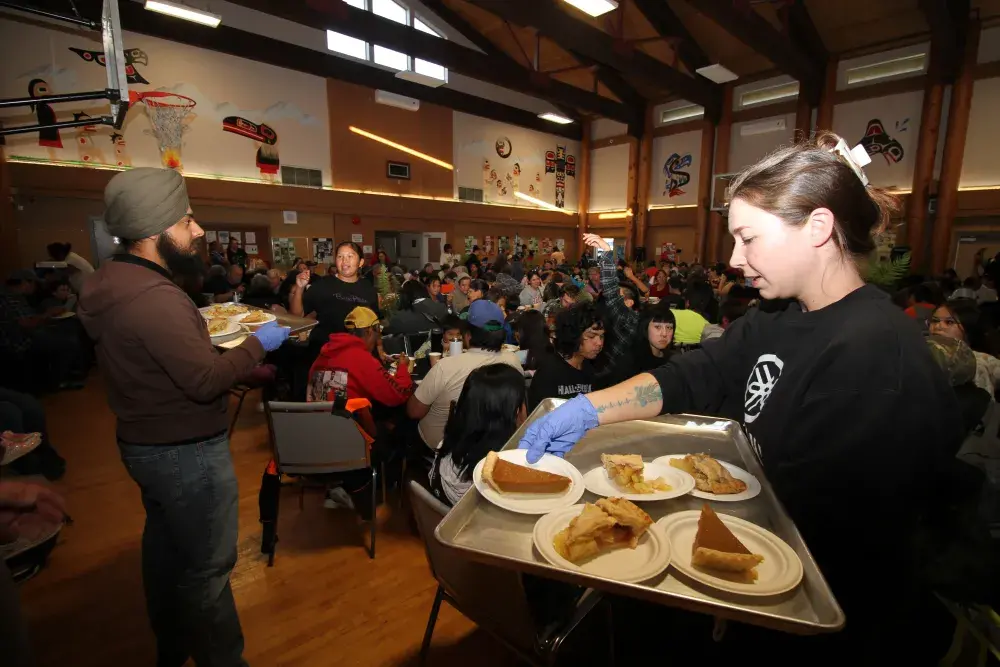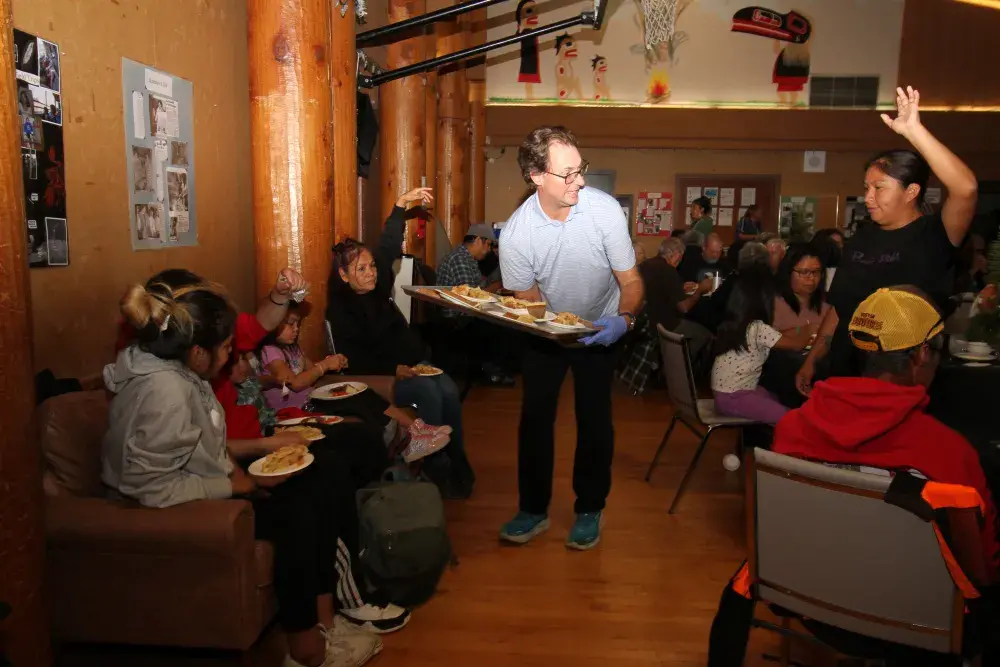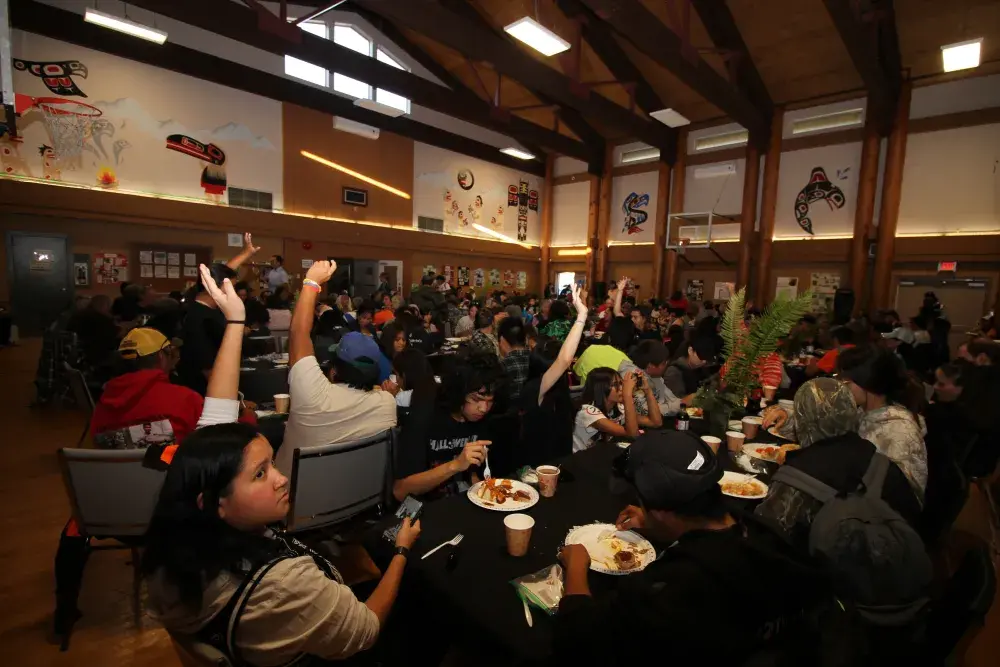From its humble beginnings at the corner of Second Avenue and Angus Street, the Port Alberni Friendship Center has grown in leaps and bounds to over 70 employees at its current home base on 4th Avenue.
PAFC Executive Director Cyndi Stevens started working there in 1986. She said in those earlier days of the PAFC there may have been five staff members delivering three programs.
“Now we have over 70 staff and probably more than 30 programs,” she told Ha-Shilth-Sa
The Port Alberni Friendship Center was established in 1965 as a non-profit Indigenous social service organization. Its goal was to provide programs and support to Indigenous peoples living away from their home communities.
Ahousaht elder Wally Samuel also worked at the PAFC in the early days. He said in 1966 he was a teenager just getting out of residential school. Instead of returning to Ahousaht, he got married and started work to support his growing family.
Laid off from his regular job in the 1970s, Samuel began working at the PAFC, first as the program director.
“My first job was to get the teenagers off the street,” he said.
Working with the teens came easy for Samuel because, he said, they were just like him…transplants from the village.
“They came from dysfunctional homes. They’d hang out in front of the pubs…that is what they used to do. They just needed a little guidance and leadership,” he added.
Samuel spent 15 years at the PAFC, first running sports and recreational programming for the youth and finishing as the executive director. He was there when PAFC opened at its 4th Avenue location on the traditional territories of the Tseshaht and Hupacasath First Nations.
Today the PAFC offers culturally sensitive services such as counseling, recreation, public health support, social events, and employment assistance, serving as a welcoming gathering place for all community members. As Wally says, you don’t need a status card to access services at PAFC.
There are friendship centres across Canada. They were founded in the mid-1960s, a period when Indigenous people were increasingly migrating to urban centers after residential school.
As a first-generation transplant from the village, Samuel recalled the feeling of not having a home in the city. The PAFC has always been a welcoming place for people to drop in, maybe share some culture, have a meal.
“That’s why we started the Friendship Center, to have a home, a place to go,” said Samuel.
The PAFC is a non-profit society offering services to the community. It is governed by its members through an elected board.
The Port Alberni Friendship Centre is one of the more than 100 friendship centres across Canada, all stemming from a grassroots movement that began in the 1950s to support urban Indigenous populations.
Stevens says that she believes the PAFC has been successful because government, which funds a majority of the programs, sees what a valuable resource the organization is to the community. At the PAFC you can be First Nations with or without a status card, you can be Métis or non-Indigenous.
“We serve everyone,” she says.
The center offers a wide range of programs for all ages, with a focus on improving the well-being of families, youth, children and elders. Programs that can be found at PAFC include addictions and mental health counselling for individuals, couples, and families dealing with substance use or mental health issues.
There are family and youth services like the Early Childhood Development Program, the Brighter Futures parenting program, and a Youth Drop-in for ages 10 to 29.
When it comes to housing the center operates an emergency shelter and supportive housing for adults experiencing homelessness. It also runs the Wałyaqił Tiny Home Village.
Employment and training programs include the Steps to Success program, which provides employment skills and training rooted in the Nuu-chah-nulth language and culture.
There is a legal program that provides free information, advocacy, and assistance with various issues, including family, poverty, and disability law.
For the elders there are activities and fun events.
There are also cultural gatherings, social events and seasonal parties with the doors open to the community.
“People have come to know that you can come to PAFC for services and if you can’t get the service there then we probably know a place to go,” Stevens said.
Echoing Samuel’s words, Stevens said the Friendship Center is a home away from home.
The PAFC served up a community roast beef dinner to celebrate its 60 years on October 14.



